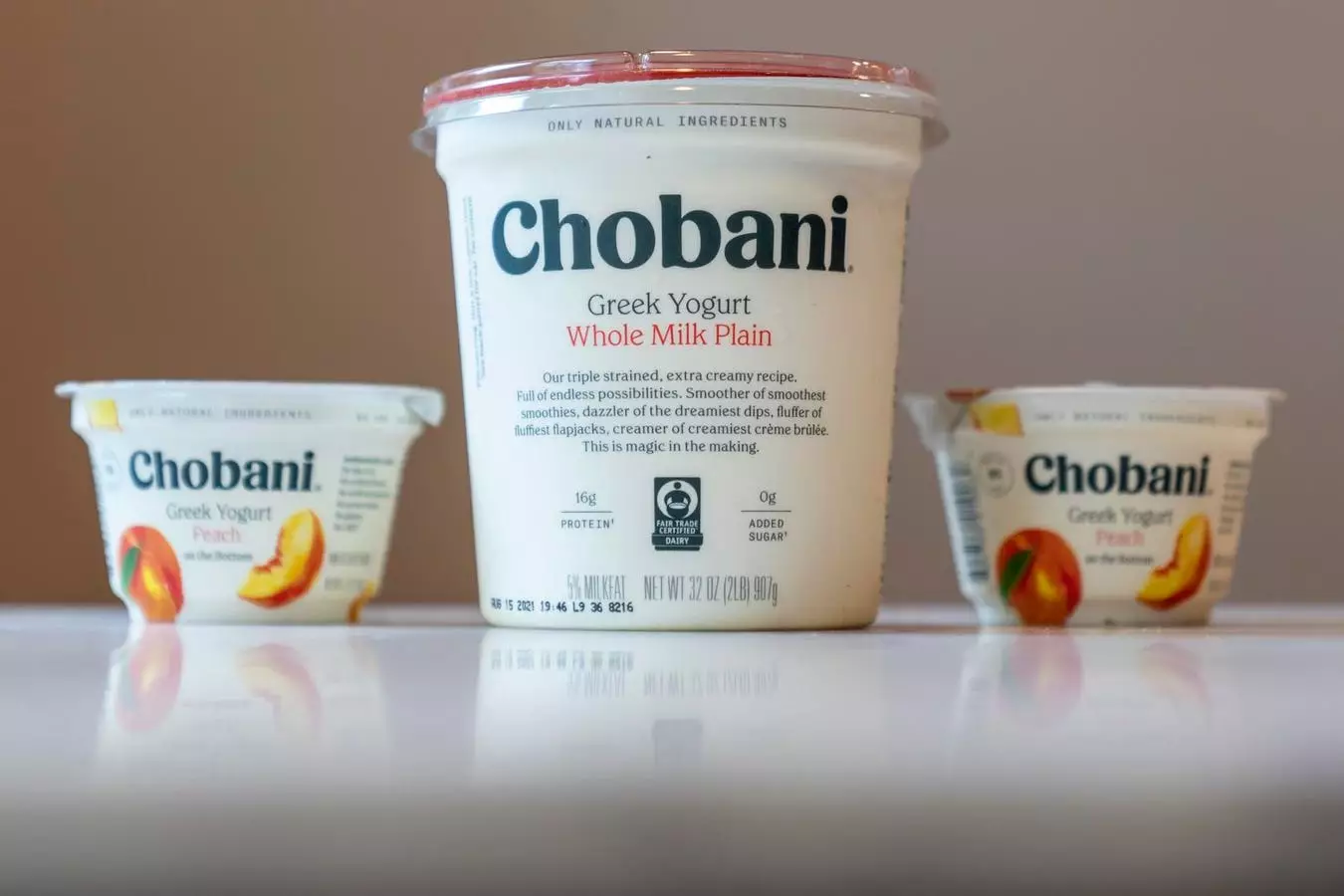In today’s fluctuating economic landscape, the intersection of sustainability and food production is more critical than ever. This week, veteran food journalist Chloe Sorvino, who has spent over a decade reporting for Forbes, delves into the transformative investment made by billionaire Hamdi Ulukaya, founder of Chobani. Ulukaya has recently allocated a staggering $1.2 billion towards state-of-the-art dairy plants in New York, signaling his dedication to revitalizing the struggling Northeastern dairy industry. Amidst the climate of uncertainty and consolidation in agriculture, Ulukaya’s commitment does not merely represent economic investment; it embodies a rather poignant responsibility to future generations concerning food quality and accessibility.
A Beacon of Hope in Troubling Times
Ulukaya’s extensive investment is particularly poignant as it occurs at a time when many small dairy farms face the threat of shutting down. Consolidation trends have led larger food corporations to prioritize profitability over community support, often neglecting agriculture’s foundational essence: nourishing local communities. Chobani’s founder recognizes this sentiment and expresses the urgency of the situation through a compelling assertion: “We could make all the advances in life, but if we can’t feed our children good food, that’s not a success.” This ethos resonates deeply, as it not only highlights the need for quality food sources but also emphasizes the moral responsibility that industry leaders have toward consumers.
Investing Beyond Business: A Community Approach
Ulukaya’s commitment doesn’t end with the new New York plant. An additional $500 million investment into expanding operations in Idaho further accentuates his long-term vision of creating jobs, infrastructure, and community-centric growth. This dual dedication speaks volumes about Ulukaya’s philosophy—business should be about more than profit; it should aim to empower communities and enhance quality of life. By fostering local economies, Ulukaya challenges the norm within the food industry, advocating for systems that prioritize healthy food production over mere corporate profitability.
Shifting Currents in Public Health Policy
In an age where information about health is rapidly evolving, public perception is often swayed by new policies and debates. Recently, Utah and Florida have made headlines by becoming the first states to ban fluoride in drinking water, despite significant opposition from health experts. This contentious issue highlights a broader concern regarding governmental roles in public health. As Robert F. Kennedy Jr. advocates for changes to dietary additives, we see emerging trends that reflect growing skepticism around synthetic food substances, particularly petroleum-based dyes. While not a full ban, this shift could lay the groundwork for more rigorous scrutiny of food manufacturing practices.
Food Safety and Economic Implications
Conversely, the food safety landscape in the United States faces its own set of challenges. A reduction of approximately 3,500 FDA employees is emblematic of wider bureaucratic cuts that raise serious concerns about food safety standards. Experts, including contributors at Forbes, are vocal about the potential ramifications of such layoffs. Reducing oversight can lead to unmonitored vulnerabilities in our food systems, prompting fears that the very foundation of health could be compromised. As stakeholders in the food industry, we must advocate for comprehensive policies that ensure safety without sacrificing quality or accessibility.
Rethinking Future Economic Models
In tandem with initiatives for healthy food systems, it’s crucial for aspiring leaders, particularly those training in elite institutions like Harvard Business School, to consider how their economic models could pivot to support sustainable efforts. Rethinking financing models can provide necessary support for long-term agricultural businesses that prioritize community well-being over rapid financial returns. Sustainable food production shouldn’t be a short-lived trend; it ought to be a foundational pillar within every economic discussion surrounding food systems.
Ulukaya’s actions remind us of the importance of building a resilient food system that emphasizes sustainability, equity, and collective ownership. As we navigate through these challenging times, it becomes increasingly evident that to instigate meaningful change, we must think collectively. Addressing food accessibility should take precedence, especially as climate change progresses. The transition towards sustainable practices doesn’t only fall upon the shoulders of entrepreneurs but must involve a robust coalition of communities, policymakers, and consumers, standing together for the future of food. Through proactive dialogue and inclusive initiatives, we can redefine the way we perceive nutrition, health, and, ultimately, the very concept of success within our food systems.


Leave a Reply